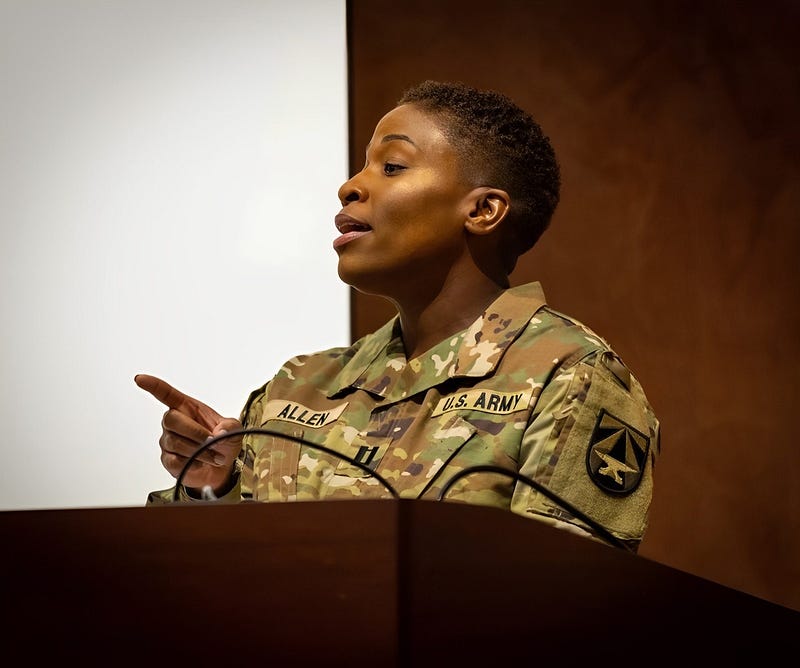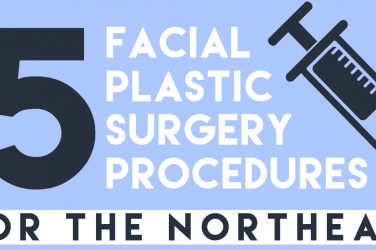Surround yourself with people who hold you accountable and push you to be your best. People who think your dreams are crazy enough to work, even if they don’t understand them.
Today, more than ever, wellness is at the forefront of societal discussions. From mental health to physical well-being, women are making significant strides in bringing about change, introducing innovative solutions, and setting new standards. Despite facing unique challenges, they break barriers, inspire communities, and are reshaping the very definition of health and wellness. In this series called women in wellness we are talking to women doctors, nurses, nutritionists, therapists, fitness trainers, researchers, health experts, coaches, and other wellness professionals to share their stories and insights. As a part of this series, we had the pleasure of interviewing Major Shanee Allen.
Major Shanee Eboni Allen is the Deputy Chief of Physical Therapy at the Alexander T. Augusta Military Medical Center (ATAMMC) in Ft. Belvoir, VA. As an Army physical therapist at ATAMMC, Major Allen unites her passion for fitness with her role as a leader to make positive health and fitness impacts on the Soldiers in the National Capitol Region.
In her former role as Company Commander at the Walter Reed Army Institute of Research (WRAIR), Major Allen utilized her Army training and expertise to promote a culture of holistic health and wellness among the nearly 300 Soldiers she oversaw worldwide, often introducing them to new and meaningful holistic health activities — such as webinars, monthly fitness challenges, weekly fitness classes, and strongman/strongwoman competitions — that pushed them out of their comfort zones and fostered a sense of connection.
Major Allen has a Bachelor of Science in Biomedical Engineering, a Master of Science in Biomedical Engineering and Forensic Science, and a Doctorate in Physical Therapy.
Thank you so much for joining us in this interview series! Our readers would love to “get to know you” better. Can you share your “backstory” with us?
I am from Houston, TX (inside the loop because that matters for native Houstonians). Many would consider my Army journey from the beginning to now as unorthodox. I’m often asked, “Did you wake up one day and join the Army?” Not quite, but if you told me 13 years ago that I would be an Army physical therapist, I would have grabbed my popcorn for the show.
For as long as I can remember, the allure of military service was captivating. Growing up, the influence of my brother, cousins, grandfather, and high school mentor, all serving in the military, ignited a deep fascination within me. However, my motivation to join grew even more vital after witnessing my brother’s challenges during his transition from the military to civilian life. As he navigated the unfamiliar terrain of education, job searching, and the complexities of transitioning from one world to another, I saw his struggles firsthand, and it sparked a fire within me — a determination to assist fellow Soldiers in their professional journey. I wanted to help them find their passions inside the military and how to work towards transitioning those same passions and visions into civilian life when that time comes.
After completing graduate school and working in forensic chemistry, I felt the calling to rekindle my military aspirations. With a clear vision of joining the Army and making a difference as an Explosive Ordnance Disposal (EOD) Officer, I approached a recruiter with excitement and anticipation.
However, fate had a different plan in store for me. It turned out that I had inadvertently walked into an Army medical recruiter’s office, where positions for EOD or Engineering Officers were unavailable. The recruiter, quick to adapt, introduced me to the world of Environmental Science Officers, a field I had little knowledge of in either the civilian or military sectors.
My curiosity piqued, and I embarked on a journey of exploration to understand the role and impact of environmental science officers. Conversations with experienced officers and deep introspection propelled me forward. Embracing the unexpected twist of fate, I pursued a direct commission as an Environmental Science Officer.
Little did I know that this seemingly humorous detour would lead me to where I stand today. Through this unexpected path, I encountered my first Commander, then LTC Deydre Teyhen, a remarkable leader who would change my life forever. Under her guidance, I was introduced to the world of physical therapy — a field that would ignite a newfound passion and propel me toward a fulfilling career. (Sidenote: She poached me from her husband, COL (Ret.) John Teyhen, who was an Environmental Science and Engineering Officer.)
Can you share the most interesting story that happened to you since you started your career? What were the main lessons or takeaways from that story?
When I was an intern in a postoperative clinic, one of my patients was an Indirect Fire Infantryman (11C) who was seven weeks into his ACL reconstruction surgery. In an ideal world, we would have seen him within one-week post-surgery, but here he was, “walking” into physical therapy for the FIRST time.
As I assessed him, I noticed that he couldn’t fully extend his leg. This was crucial for his recovery, as regaining knee extension and quad strength were our primary goals at this stage. But here’s the catch: he was not happy about it. In fact, he was angry, frustrated, and defeated. And who could blame him? The circumstances leading to his delayed care had taken a toll on his spirit. He already had reservations about physical therapists, fearing that we might just be “physical torturers.”
As I prepared to work on his knee extension, I looked at this NCO (Non-Commissioned Officer) and leveled with him, “This is going to be challenging, but trust the process and me, and we’ll get you back to doing all the cool guy stuff.” The look on his face and the colorful language that followed spoke volumes!
But here’s where the story takes an unexpected turn. What started as a rocky patient-care relationship became the catalyst for my passions. As I sat with this patient multiple times a week for a couple months, I learned more about the goals he had for himself. So, I made him another promise, “Let’s take your rehab to the next level, and I’ll make you the advanced tactical athlete that I know you are!” As a result, we developed an advanced physical therapy rehabilitation class that still stands strong today. We didn’t just focus on the physical aspects of rehab; we delved into the psychosocial elements, too. We addressed fears, insecurities, and confidence. It was challenging yet incredibly rewarding work.
That experience ignited a fire within me. I transformed into Bob the Builder, ready to construct something meaningful anywhere I went. It didn’t matter if it was related to physical therapy or any other aspect of healthcare or leadership; I learned the importance of finding what’s missing and building it from the ground up. Even if it’s not perfect, if it has passion and good intentions, it can have a positive impact.
And here’s the best part: I still keep in touch with that NCO, and they are back to doing all the cool Army things they love. I owe a lot to that Soldier because, just as much as I helped them confidently return to their job, they gave me the confidence and empowerment to believe that I, too, could do great things.
So, the main lesson I took away from this incredible journey is: Embrace the challenges, forge connections, and never be afraid to build something impactful, even if it’s a grassroots effort. With passion and good intentions, you can create amazing things that make a difference in the lives of others.
It has been said that our mistakes can be our greatest teachers. Can you share a story about a mistake you made when you were first starting? Can you tell us what lesson you learned from that?
Starting a career can be exciting and daunting, filled with countless opportunities for growth and learning. During this period, we often make mistakes that shape us into the professionals we become. I experienced my fair share of blunders and am grateful for each misstep along my journey. I wear them with pride because it’s important for people, especially young Soldiers, to know that success is on the other side! Here are the two main lessons that I want to share:
Lesson #1: Endure the Process and Trust the Journey. Life has a way of throwing unexpected challenges our way. In these moments, when we are hit the hardest, we discover our true strength. As the famous Rocky quote goes, “It ain’t about how hard you hit. It’s about how hard you can get hit and keep moving forward. That’s how winning is done.” Every obstacle and adversity I faced became a testimony to others facing similar struggles. I realized that hardships are inevitable by enduring the process and trusting the journey. However, by persevering and continuing to move forward, we often find ourselves in unexpected and rewarding places. Looking back, I now understand that if I had obtained everything I wanted when I wanted it, I would not be where I am today.
Lesson #2: Embrace Resilience and Share Your Light. After overcoming the challenges and shaking off the dust from our shoulders, embracing resilience and adopting a “be like the sun” mentality is essential. This means showing up daily, regardless of the circumstances, and doing the work. Just like the sun shares its light, warmth, and energy unconditionally, we should share our gifts, knowledge, and passion without fail. There will always be individuals who may question or criticize, but they will never argue the significance of our contributions. We inspire others and create a positive impact by remembering our worth and shining brightly even on the stormiest days.
Let’s jump to our main focus. When it comes to health and wellness, how is the work you are doing helping to make a bigger impact in the world?
My work aims to make a more significant impact in the world by promoting the idea that there is no “one way” to contribute to health and wellness initiatives. It’s not just about me but about the collective effort. The health and wellness field is vast and can be overwhelming for some. As a healthcare provider and leader, I strive to motivate people to find their own space and motivation to get involved.
Throughout my journey as a Physical Therapist and Company Commander, I have used my voice, expertise, and influence to collaborate with subject matter experts and enthusiasts, bringing a culture of holistic health to Army Soldiers and civilians wherever I go. For example, while at WRAIR during the pandemic, I developed safe and effective training programs that adhered to pandemic guidelines for the Army Combat Fitness Test (ACFT), which works to optimize Soldier performance on and off the battlefield. I also created the Forging Improvements Together (FIT) Squad, which is an innovative MS Teams channel that promotes holistic health virtually for WRAIR’s active duty and civilian staff worldwide. This initiative later transitioned into the “Full Force Fitness” WRAIR worksite health and wellness campaign.
Currently, as Deputy Chief of the Department of Physical Therapy at the Alexander T. Augusta Military Medical Center (ATAMMC), I continue to positively impact the individuals, organizations, and community I belong to. In my six months in this position, I have been driving initiatives such as the “Mobile Holistic Health and Fitness (H2F)” concept, which provides holistic care to Soldiers in various units across the National Capitol Region (NCR) who don’t have these embedded capabilities. Additionally, I mentor and volunteer with programs like Academy X, assisting high school participants with training and testing for the Candidate Fitness Assessment requirement when applying for military academies and ROTC.
My drive and vision extend to expanding ATAMMC’s Physical Therapy pelvic health services and community outreach to the NCR’s women and men (yes, men too…my quick plug). By constantly striving for innovation, collaboration, and mentorship, I aim to make a lasting impact on the individuals, organizations, and communities I serve in health and wellness.
Can you share your top five “lifestyle tweaks” that you believe will help support people’s journey towards better wellbeing?
I don’t have five lifestyle tweaks to share; only a friendly reminder that I would give everyone, including myself. Start with just that: TWEAKS! Only try to change a few things at a time when incorporating lifestyle tweaks to support better well-being. Making small, gradual changes allows sustainable habits to form and reduces the chances of feeling overwhelmed or discouraged. You can gradually integrate these changes into your lifestyle and build a solid foundation for well-being. The key is to focus on progress, not perfection, and to be kind to yourself throughout the journey.
If you could start a movement that would bring the most amount of wellness to the most amount of people, what would that be?
If I could start a wellness movement, I would call it “Get Ya Mind Right!” AKA, shift your mindset. Shifting our mindset is a powerful holistic approach to health to improve our overall well-being by recognizing the interconnectedness of our physical, mental, emotional, and spiritual well-being. It’s an approach we use with Army Soldiers, with a combination of positive thinking, self-empowerment, mind-body connection, resilience, and adaptability — all the things I educate patients on throughout the rehabilitation process. Shifting our mindset involves cultivating a positive outlook, focusing on opportunities and possibilities, encouraging people to believe in their abilities, and taking proactive steps toward achieving them.

What are your “5 Things I Wish Someone Told Me Before I Started My Career” and why?
While technical competence is vital, being an Army Officer and a leader as a healthcare provider requires a broader skill set. It entails embodying the values of the Army, demonstrating strong leadership qualities, and contributing to the overall mission and success of the military organization. By recognizing and embracing these responsibilities, you can make a meaningful impact as a healthcare provider and a leader in the Army.
- Grow where you are planted and strive not to be a success but to be of value. No task is beneath you, and no task is too great. We’re all trying to navigate this crazy thing called life, and the more we work together with open minds and hearts and are ready to put in work, the better we’ll all be.
- Explore! Your chosen profession has a projected path, but so many opportunities exist if you step onto the road less traveled…remember not to step on Sergeant Major’s grass! Lol! I’ve worked in industrial hygiene and an internship at the Pentagon as a Company Commander; I’ve even co-hosted a podcast! The possibilities are endless!
- Surround yourself with people who hold you accountable and push you to be your best. People who think your dreams are crazy enough to work, even if they don’t understand them.
- Comparison is the thief of joy. Remember, each person is on their own unique journey, and appearances can be deceiving. While someone’s path may seem effortless, it may not be. Instead of comparing yourself to others, focus on your own growth and improvement. By concentrating on ways to better yourself and positively impact those around you, you can find fulfillment and inspire others to do the same.
- Remember to have fun! The Army can be a challenging and demanding environment. Engaging in enjoyable activities that create a sense of fun can boost morale and improve mental well-being. It can serve as a much-needed break from the rigors of military life, release stress, and contribute to overall mental and emotional resilience. Trust me, your Soldiers will thank you!
Sustainability, veganism, mental health, and environmental changes are big topics at the moment. Which one of these causes is dearest to you, and why?
Like I mentioned before…we gotta get the mind right! It is through nurturing our mental health and well-being that the journey to overall health and wellness begins.
What is the best way for our readers to further follow your work online?
To learn more about a healthcare profession in the Army check out GoArmy.com. You can find me at https://www.linkedin.com/in/shaneeallen.
Thank you for these fantastic insights! We wish you continued success and good health.







